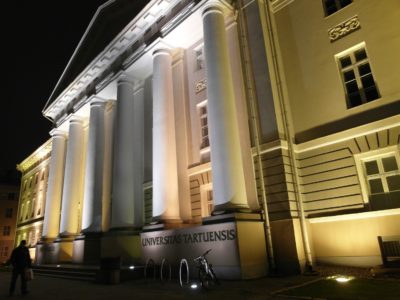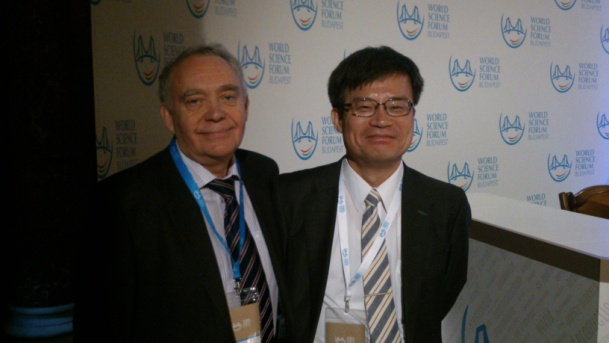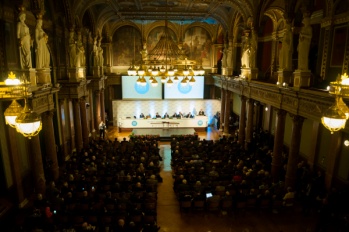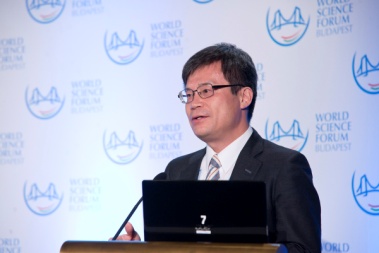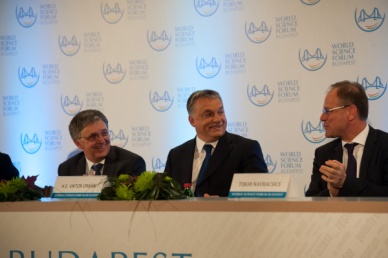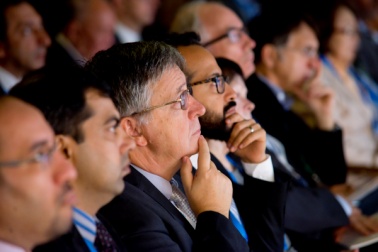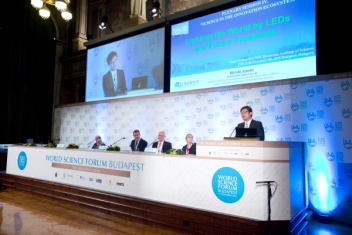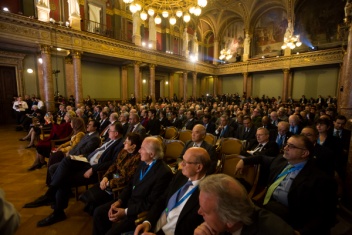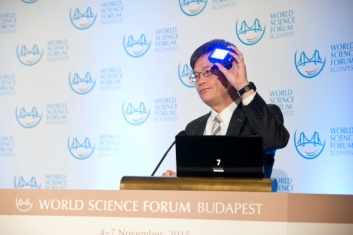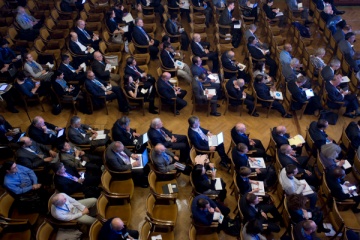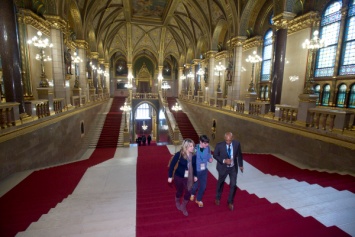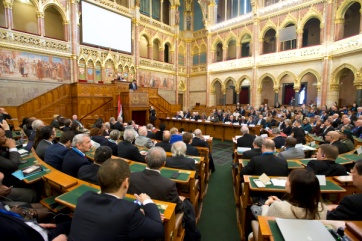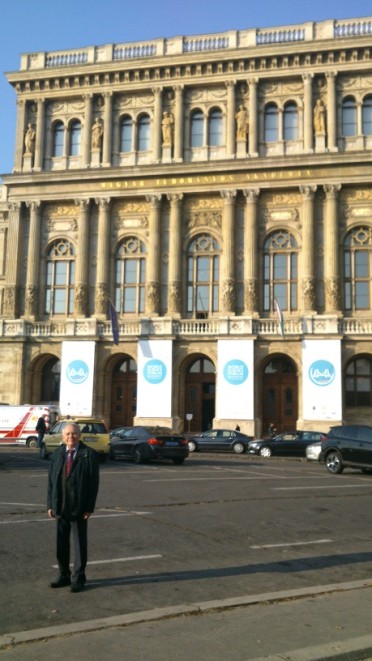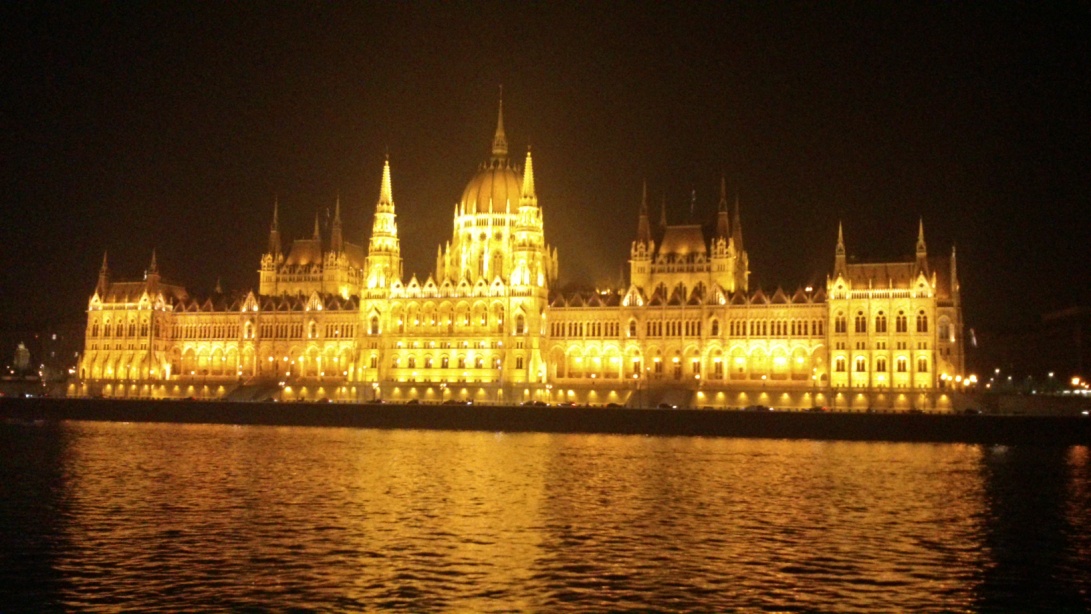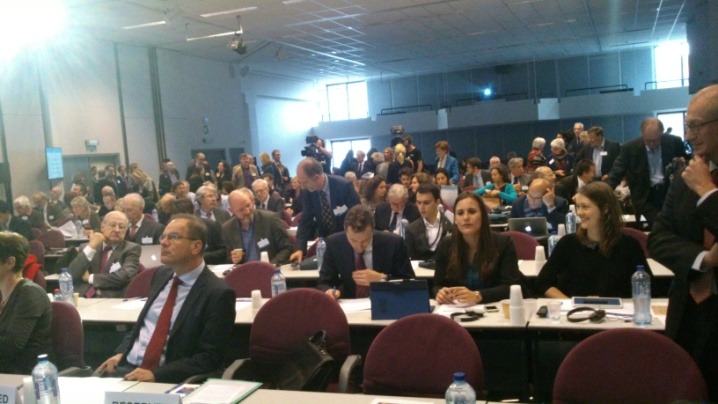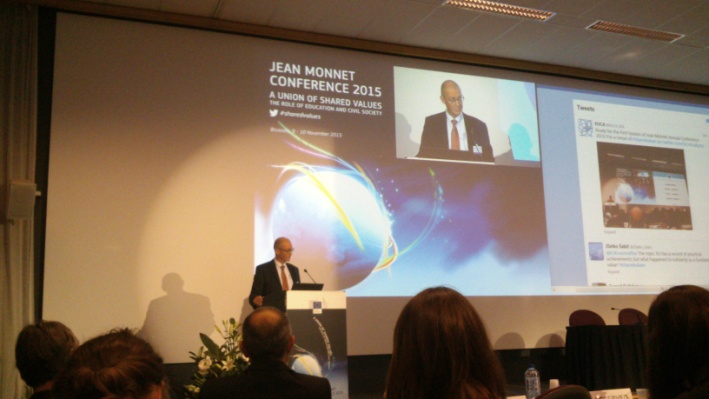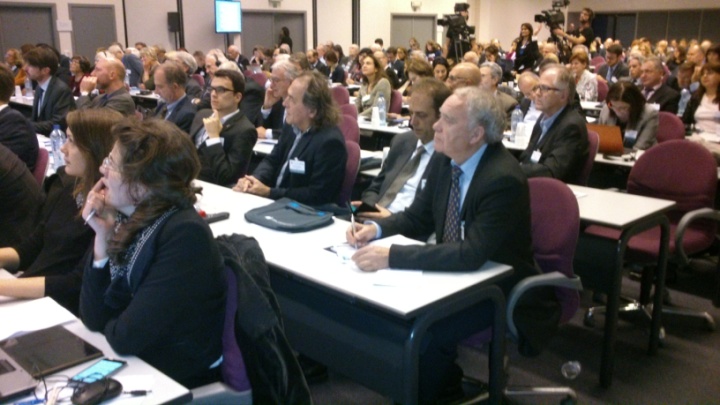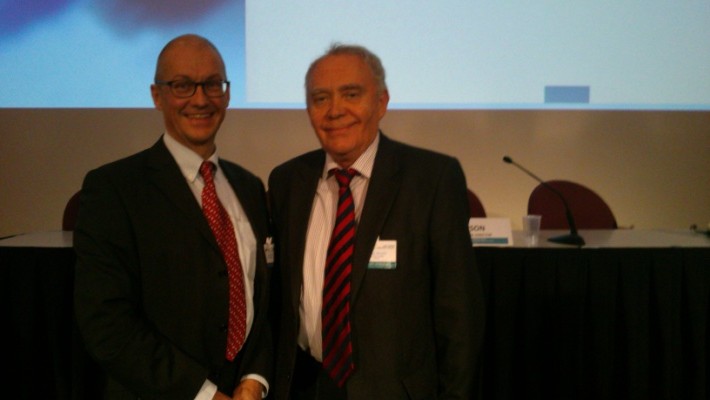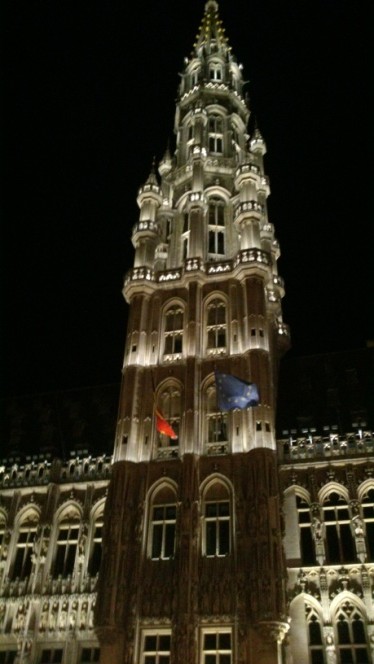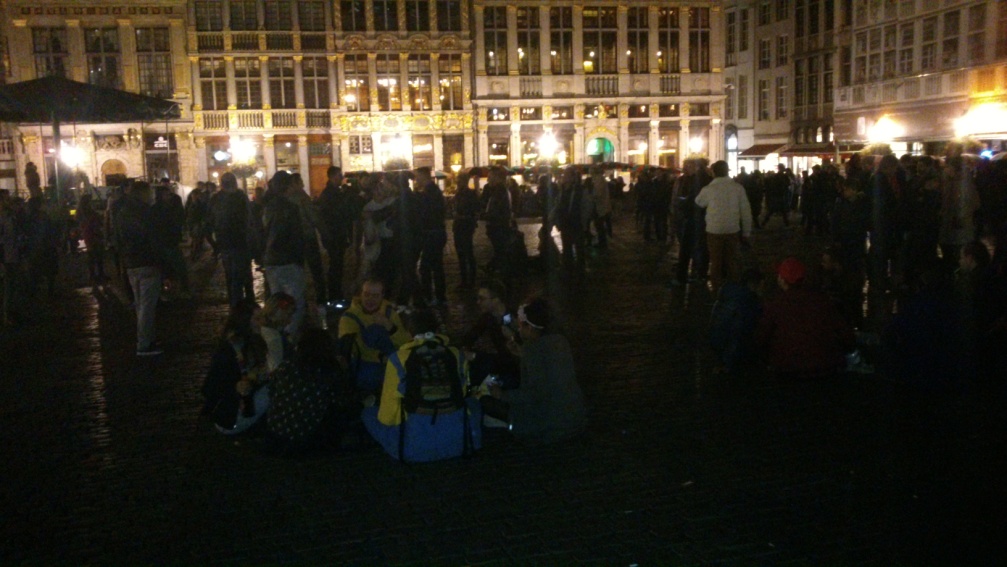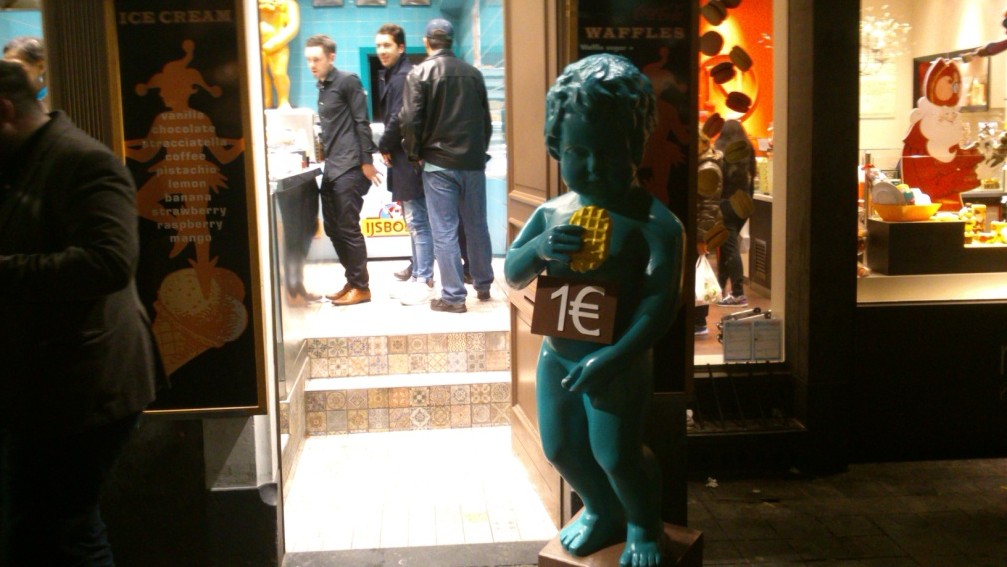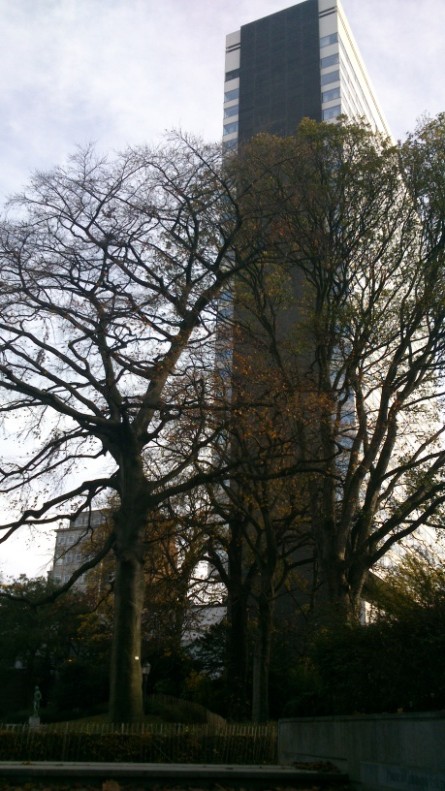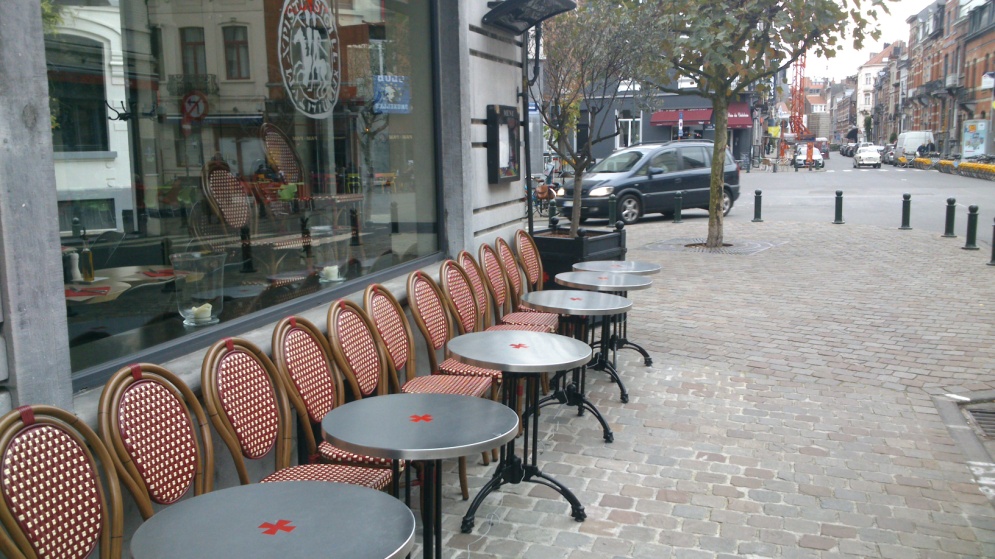|

In the past two weeks, the Head of the Department of Economics and Business Administration, Director of the Institute for Development Economics of Ministry of Education & Science and National Academy of Science of Ukraine, Doctor of Economics, Professor Leonid Melnyk participated in two international scientific events. First, he took part in Budapest World Science Forum (November 4-7), and then took part in the International Annual Conference in Brussels (November 9-10) for professors, of EU Jean Monnet grants holders.
Science Forum
World Science Forum is a significant event in the scientific world. It is held every two years with the participation of the world leading academies of science. The fact that the Forum was attended by more than 900 leading scientists from more than 100 countries speaks for the importance of this event. This year’s Forum was focused on “More responsibility and ethics of science to the solution of major global challenges in the field of environment and health.” Hungarian Prime Minister Viktor Orban (you can see him in the photo below) opened the Forum.
The hard work of the Forum
(in the first picture – the opening of the Forum in the auditorium of the Hungarian Academy of Sciences, in the second – Nobel Laureate Professor Hiroshi Amano, in the third – the first left Viktor Orban – Hungarian Prime Minister, in the fifth photo first left – Professor Leonid Melnyk, in the ninth photo – Professor Hiroshi Amano is demonstrating his “sustainable blue light” in the last two pictures – closing of the Forum in the Hungarian Parliament)
The Forum raises important issues that contribute to the responsibility of science in ensuring sustainable development in the world, the role of science in achieving peace, the way science impacts on decision-making in society, forms of interaction with the administrative authorities, to ensure dialogue between science and different social spheres. Some sections tackled the actual problem: the transfer of innovation, the transition to renewable sources of energy and resources, adaption to accelerating change, dissemination and popularization of scientific knowledge, etc. The International Union of Journalists and UNESCO played an active role in the conference. In particular, UNESCO presented the award for Argentine scientists for scientific research in biology.
A pleasant surprise for the Sumy scientist was to meet Professor Hiroshi Amano Nobel Laureate in physics, the representative of Nagoya University in Japan (where Professor Melnyk once passed a one-year internship). Participants discussed how to move society towards sustainable development.
|

Forum venue – the building of the Hungarian Academy of Sciences
|

The building of the Hungarian Parliament, where the closing ceremony of the Forum occurred
|
Both buildings were built for those functions in which they are used today, at the end of the nineteenth century, during the “ruthless” exploitation of Hungary as part of Austro-Hungarian Empire. Other indicator of this exploitation might be found by everyone inside these buildings (see in the photos the decoration of them).

Prof. L.G. Melnyk with a “countryman”, Professor from Nagoya University, Nobel Prize winner Hiroshi Amano (Nobel Prize was awarded for the discovery, which practical application was energy saving “blue light”)
Jean Monnet Conference
In 2015, traditional annual Jean Monnet conference was held on “Union of shared values – the role of education and civil society”. It was attended by over 300 delegates from more than 40 countries. The executive director of the European Commission for Educational and Cultural Affairs Adam Tyson had an opening speech. The participants actively discussed the problem of how to make available to every citizen the basic values on which the European Union is built: human dignity, freedom, democracy, equal rights, tolerance for others, protecting the rights of the minorities. Debating on the role of education in preventing possible outbreaks of terrorism, such as the one that occurred in the Paris magazine “Charlie Hebdo” in January this year, the participants may not have known that in 3 days in Paris a series of horrific terrorist attacks will take place. One of the major issues discussed at the conference was how to make higher education different? (It means that it has to have its own specifics in different regions).
Speaking at the session “Education at all levels,” Professor Leonid Melnyk suggested that such basic categories as: freedom, respect for human dignity, tolerance, etc. are not only fundamental values in a democratic society, but also the essential tools of the future functioning of economic systems. The development of the latter takes place through the integration of a huge number of small economic cost-free forms (for example, millions of renewable energy generators or mini-enterprises using 3D printers) into a single cross-border network. These forms can only be realized if each participant of the network will know how to take into account and respect the basic peculiarities (customs, traditions, values, interests) of other members of the network.
|

Conference
|

Mr. Tyson’s speech
|
|

Prof. Leonid Melnyk at the conference
|

Prof. Leonid Melnyk with Adam Tyson – the executive director of the European Commission for Educational and Cultural Affairs
|
While walking around Brussels was mainly in the evening hours, it did not prevent (and maybe helped) admiring the city. In these hours, it looks fantastic.
|

“Skyscraper” on the Grand Place
|

In the night square it is as in the day light (crowded)
|
|

Even at the end of the working day Manneken Pis is full of strength and energy
|

A stone’s throw from the Manneken Pis his counterparts are working, earning a living for … their masters, owners, owners of cafes and shops
|
|

In Brussels, homes grow faster and higher than trees
|

In Brussels, it is seemed to have found those same 12 chairs … They are near the cafe, just a few steps away from the Jean Monnet conference venue – the Brussels Congress Centre
|

Not far from the hotel where Jean Monnet conference participants lived, on the Boulevard of Waterloo one can see an interesting sculpture. Perhaps it is a monument to the first step of a man in his upright position (although the sculptor Luk Van Soom called it The Man from Atlantis). Recalling the words of Lunar odyssey hero, we can say: “One step for man and one giant leap for mankind.” However, this monument is the reminder of other … Every next step could be a fall into the abyss …
|
